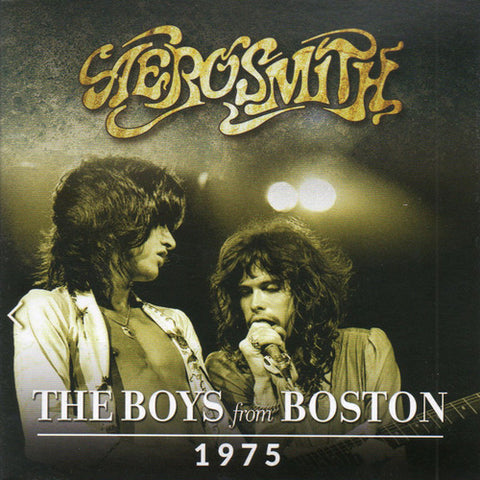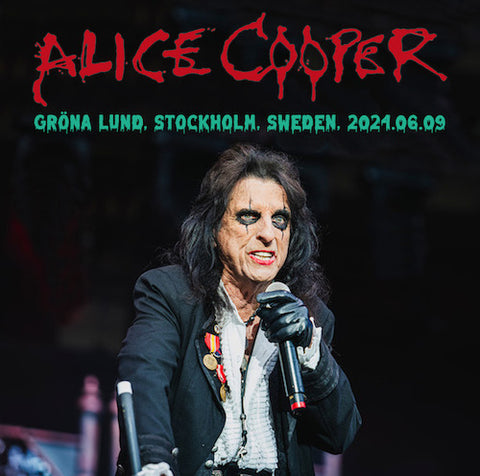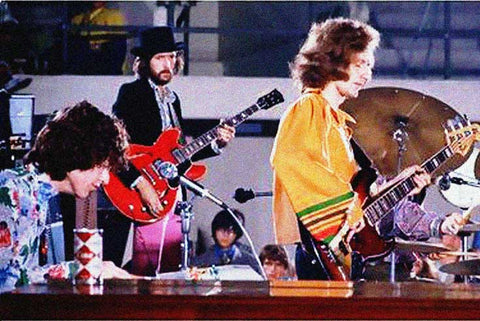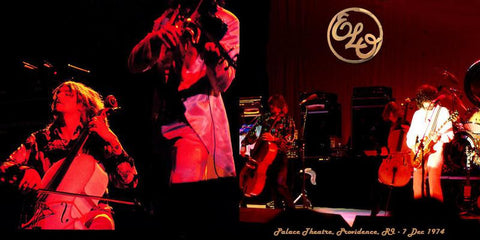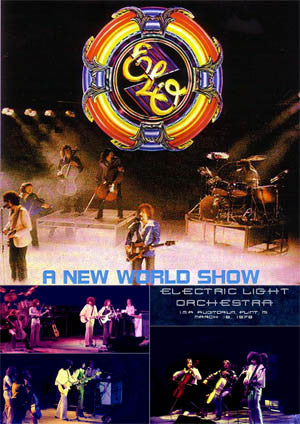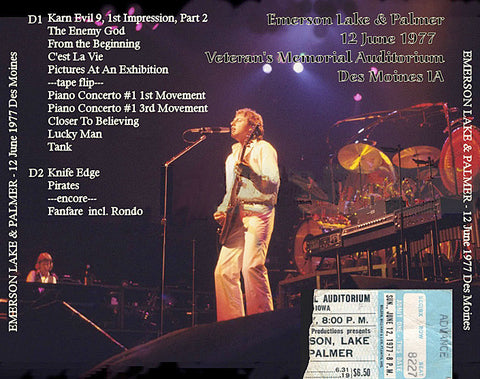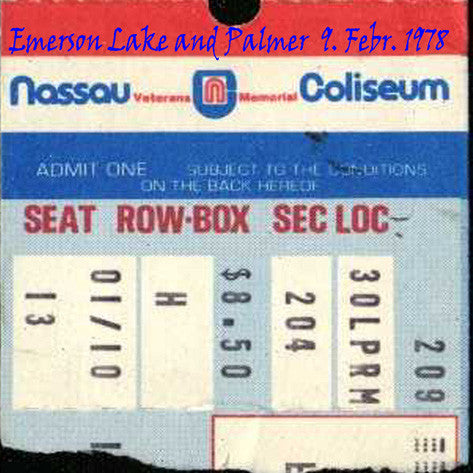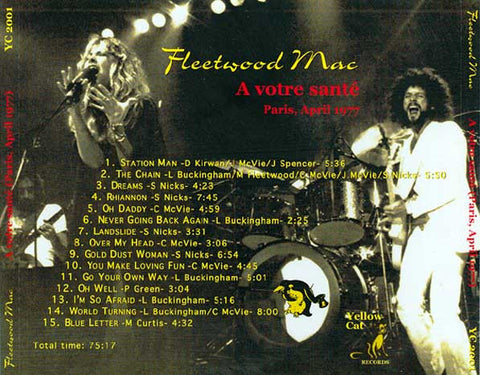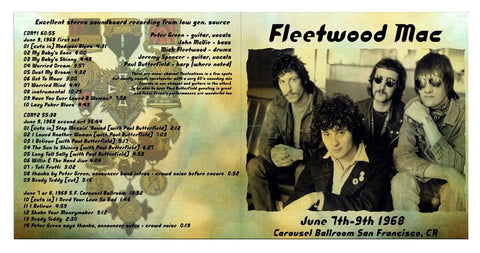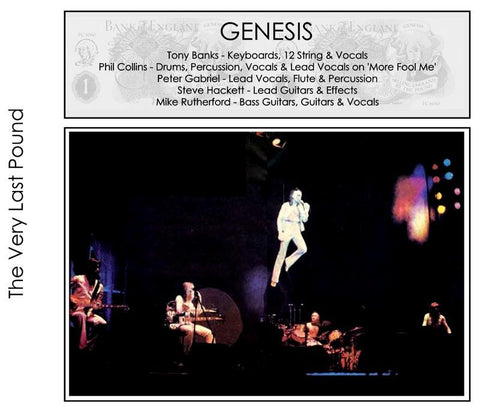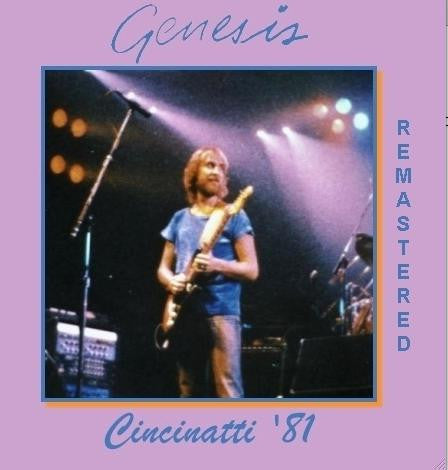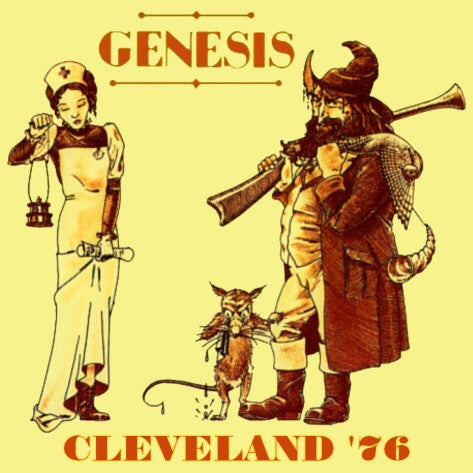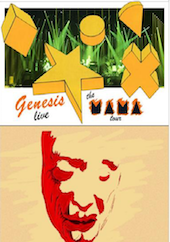Genesis - Watford Town Hall, London - June 28, 1972
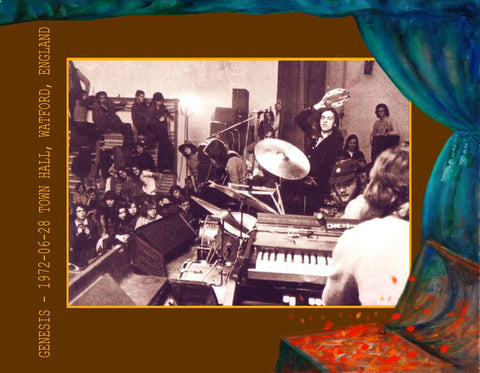
Jun 28, 1972 (Watford Town Hall - London, England) 2cdr
Recording - Audience/B
CD 1 - 47:37 ;
1-1. Support Act And Introduction 3:15
1-2. Watcher Of The Skies 7:30
1-3. Story Of Thomas S. Eiselberg 1:18
1-4. Stagnation 8:36
1-5. Story Of The First Hermaphrodite 1:55
1-6. One Handed Drum Solo 3:16
1-7. The Fountain Of Salmacis 8:29
1-8. Happy The Man 4:24
1-9. Twilight Alehouse 8:54
CD 2 - 35:18
2-1. Story Of Old Henry 1:27
2-2. The Musical Box 10:41
2-3. Hogweed Introduction 1:41
2-4. The Return Of The Giant Hogweed 9:42
2-5. Improvisation 2:16
2-6. The Knife 9:31
Peter Gabriel - lead vocals, flute, percussion;
Steve Hackett - lead guitars & effects;
Mike Rutherford - guitars, bass guitar, bass pedals, backing vocals;
Phil Collins - drums, percussion, backing vocals;
Tony Banks - keyboards, 12 strings guitar, backing vocals
By the middle of 1972, with what would later be hailed as the classic line-up of the band firmly in place, Genesis were ready to forge ahead with their career. The arrival of Phil Collins and Steve Hackett had brought a new confidence to the band and a dynamic energy to their music. But even though their third album, “Nursery Cryme”, had reached number 4 in the Italian charts and their first tour of Italy had been a great triumph and morale-booster for the band, they knew only too well that their was still a long way to go. They needed to gain recognition and expand their fan base in their own country. Towards that end, Genesis set about playing extensively throughout Britain, performing wherever and whenever they could, sometimes to dismally small crowds. Slowly but surely, the band's reputation as a great live act grew and they started to attract more and more attention.
In March 1972, Genesis played a particularly memorable show at the Technical College in Watford, UK. The concert was performed before a very attentive and enthusiastic audience and was a great success but still the band needed to gain more interest from the media. Their albums were receiving no airplay and, apart from a few encouraging articles in 'Melody Maker'; the rock press in general was not receptive to this very unconventional group. David Stopps, owner of the Friars club in Aylesbury, decided to launch an advertising campaign to help Genesis gain stronger support from the media. He recalls, “1972 had seemed a strange period for Genesis. It was a year when they seemed to be making little progress, but at Friars they were always megastars. I remember talking to the band at this time and there was a certain amount of despondency in the air. They didn't seem to be making any progress nationally or internationally and I had the distinct feeling that they were thinking of breaking up”.
Stirred into action, Stopps instigated a campaign in 'Melody Maker', urging readers to listen to the albums “Trespass” and “Nursery Cryme”. But his most effective idea was to stage a special Genesis Convention for their dedicated fans. Peter Gabriel himself had a thousand rosettes made which proclaimed GENESIS '72, and these he would throw into the audience. Stopps recalls, “We had to pick a large venue so we chose Watford Town Hall where we had previously presented Elton John, The Faces and The Kinks”.
The support act on that very special night was Flash, featuring guitarist Peter Banks (of early Yes fame) who remembers, “It was a dreadful night for us as our bass player Ray Bennett broke a string on the first number…and bass players normally never break strings! We had this new PA system which we lent to Genesis that night since we all knew each other well in those days. Phil Collins had his first jamming band called Zox & The Radar Boys in which I sometimes played lead guitar. It was this group that later evolved into Brand X”.
Genesis opted to open their set with a brand new song, 'Watcher of the Skies', still very much a work in progress. To have a chance to hear this classic number in its still unfinished state must have been worth the price of admission alone that night. Nobody knew at the time, of course, just how huge a milestone this song would become in Genesis history. David Stopps concludes, “Unfortunately, the performance itself was again beset with technical problems. But despite this, the band gave it everything and so did the audience who were determined to make it a success.” As for the strange noises heard just before the Genesis performance, I guess only one who was actually there that night could ever tell us what this was all about. We hope that you will enjoy this great remaster of a very special Genesis concert.
